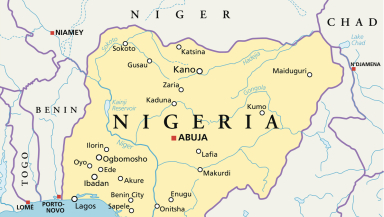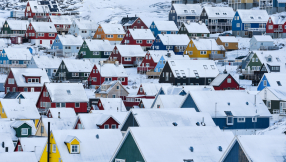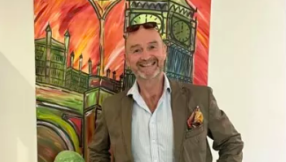
A new report by the All-Party Parliamentary Group for International Freedom of Religion or Belief has warned that devastating bloodshed across parts of Nigeria is being fuelled largely by Islamist extremism.
The report, "Nigeria: Unfolding Genocide? Three Years On", launched in Parliament on Tuesday, says that the situation has worsened in the last three years and that Christians are being adversely affected.
According to figures from Open Doors cited in the report, Nigeria today accounts for 89% of all Christians killed worldwide, with at least 5,950 killed for their Christian identity last year.
However, the widespread violence is also affecting moderate Muslims and others who do not subscribe to extremist ideology.
The report says that while poverty, climate change and ethnic tensions are factors in the violence, it is religious extremism that is the biggest driver of the bloodshed.
Extremist groups like Boko Haram and the Islamic State West Africa Province (ISWAP) have carried out repeated attacks on communities but armed banditry and kidnapping for ransom have added to the crisis.
A submission by Christian Solidarity Worldwide warned, "On occasion, some militiamen have also been clear about what drives them: it is essentially a land grab facilitated by ethnic cleansing."
The report notes a reluctance in Western nations to see the violence as religiously motivated, and raises concerns that the violence, which until recently had been confined to the north, is increasingly spreading south.
"For years now, academics, politicians and major western NGOs in the west have downplayed the role of Islamist extremism in this slaughter," said Henrieta Blyth of Open Doors UK and Ireland.
"Instead, they have focused on ethnicity or climate change, both factors. But when I speak to women or men whose families have been butchered or villages burned down, they are clear. They know who is persecuting them and why; why are we erasing their voices?"
Write in the report's foreward, Jim Shannon MP, said, "A significant driver of religious-based persecution in Nigeria is Islamist extremism.
"A devastating example can be found in the mass shooting and bomb attack that occurred at St. Francis Xavier Catholic Church in Owo, Ondo State, on 5 June 2022. Estimates for the number of faithful who died range from 40 to 80 people.
"This attack was notable not only for the large number of lives lost, but also for having occurred in southwestern Nigeria – typically a peaceful state. In recent years, attacks from extremists have been concentrated in northern Nigeria. The Owo mass shooting marked a concerning spread of violence through the country.
"Tragedies such as the above put Nigeria in dire need of increased international attention."
Mrs Blyth added that the religiously motivated roots of the violence must be recognised both in Nigeria and beyond.
"This is a perilous situation, not just for Christians, but for the whole nation ... Until the Nigerian government and the international community acknowledges what victims have been saying to us loud and clear, how can they hope to address the situation?" she said.













